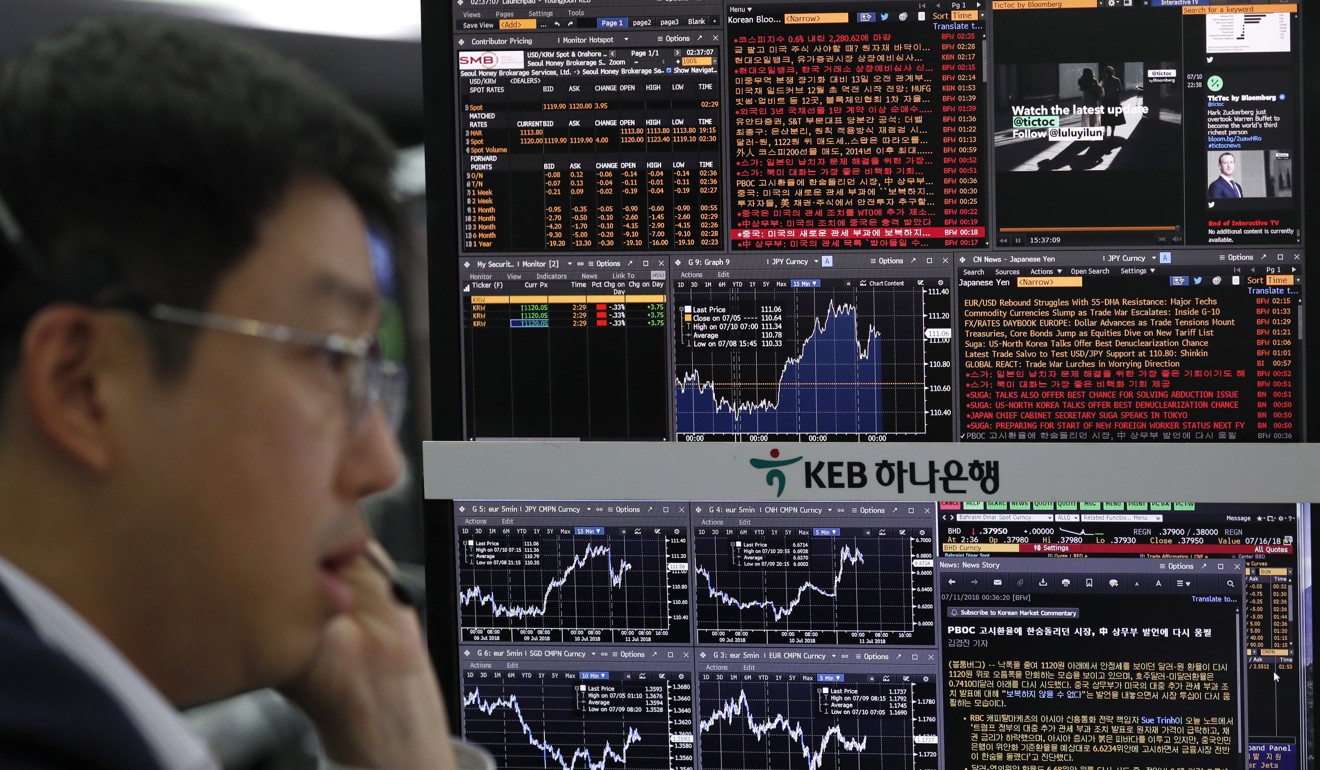
Trump’s Huawei ‘ban’ gives Asian tech firms 70 billion reasons to worry
- The US move has sent Huawei’s suppliers scrambling to see how they will be affected, particularly those who rely on it as their main customer
- More than half of the company’s core global suppliers are from Asia, and many see their shares tumble after the announcement
In Japan, Finance Minister Taro Aso on Friday said Washington’s fresh salvo against the beleaguered tech firm could impact the country’s firms and economic growth.
“There could be direct and indirect effects on Japan,” Aso said, following a cabinet meeting. “There are Japanese companies that supply parts to Huawei, and supply chains are intertwined in complex ways.”
The Trump administration this week added Huawei and 70 of its affiliates to its “entity list” of firms deemed threats to national security, effectively prohibiting the firm from buying US technology and components. The ban went into effect on May 17.
US war on Huawei shows China’s belt and road needs a rebrand – and quick
Trump also issued an executive order banning US firms from using technology produced by any company assessed to be a national security risk.
The Shenzhen-headquartered company – the world’s largest supplier of telecommunications equipment, which last year reported US$105 billion in revenue – counts more than two dozen Asian firms among its suppliers of key components for its products.
The president of one of two Hong Kong-based core suppliers to Huawei said he was concerned about the ban impacting the Chinese firm’s bottom line. “If they are under pressure, they may not outsource any more,” he said, declining to be named. “Many people depend on them – that’s the biggest worry.”
His company supplies the Chinese firm with machines manufactured in Europe, and has an office in Vietnam.
My way or the Huawei: how US ultimatum over China’s 5G giant fell flat in Southeast Asia
Timothy Heath, an analyst at Washington-based think tank Rand Corporation, said the latest developments meant American companies might be more reluctant to collaborate with Asian companies that relied heavily on Huawei technologies. This could leave Asian suppliers – some of the world’s biggest technology companies – forced to choose between selling to the Chinese telecoms giant and selling to American firms.
Chinese firms account for 25 of Huawei’s 92 core global suppliers, while 11 are from Japan, 10 from Taiwan, two each from South Korea and Hong Kong and one from Singapore. There are 33 American firms on its list of suppliers.

Major Asian suppliers include Sony, Murata Manufacturing, Toshiba Memory and Fujitsu from Japan; Korea’s Samsung and SK Hynix; Taiwan’s Nanya Technology and Taiwan Semiconductor Manufacturing Company; and Singapore’s Flextronics.
Gary Ng, economist at investment bank Natixis, said the ban could have ramifications for suppliers across the region.
US anxiety over China’s Huawei a sequel of the Yellow Peril
“The move by the US is consistent with the Trump administration’s strategic goal to reshuffle the global supply chain,” said Ng, who noted that suppliers who relied too heavily on Huawei as their primary customer could be at risk.
Shares in companies that supply to the firm tumbled across Asia following Trump’s announcement, with Samsung and SK Hynix dipping 2.4 per cent and 3.5 per cent respectively.

Huawei in a Thursday statement said its blacklisting would “disrupt current collaboration and mutual trust that exists on the global supply chain” and was in “no one’s interest”. “We will also proactively endeavour to mitigate the impact of this incident,” it said.
The US president’s move came amid reports Huawei had in recent months stockpiled a year’s worth of essential parts in anticipation of fresh obstacles to securing US technology.
Australia becomes increasingly isolated among Five Eyes partners if UK includes Huawei in 5G network
The company is highly dependent on US manufacturers for components, with 16 per cent of its 2018 orders, or nearly US$11 billion, going to American companies. It remains unclear whether the ban applies to all sales of any component made by an American firm, or applies only to a limited subset.
Any decision by Huawei to scale back operations as a result of depressed demand would also complicate the roll-out of 5G broadband networks across Asia, where numerous countries have embraced the firm’s technology.
A similar ban on China’s ZTE Corporation last year brought the smaller competitor to Huawei to its knees before it was removed last July.


